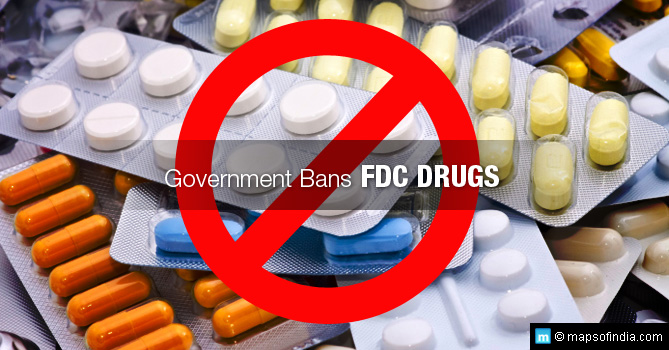Recently the Food and Drug Administration (FDA) of the US has opted to recall several generic drugs being provided by Indian companies and has also banned the import of some others. This has led to some worries regarding the quality of these drugs among doctors in the US. Canada is the largest supplier when it comes to over the counter and generic drugs in the US and India comes next with 40% of the overall supplies in this domain.
In the last couple of months the FDA has mentioned several problems with India-made drugs such as sanitation issues and manipulation of data. The companies whose products have been banned by the FDA are Ranbaxy Laboratories, Sun Pharmaceutical Industries and Wockhardt. Doctors such as Steven Nissen, who heads the Cleveland Clinic’s cardiology department, are acknowledging the problem and saying that things are indeed getting serious as far as doctors are concerned. However, it would be wrong to assume that the Indian pharmaceutical companies are the only ones to have received warnings pertaining to the quality of their products or slapped with a ban on the import of the same.
Johnson & Johnson has also faced issues with failure of quality control systems. In the last 5 years they have had to recall several products such as Tylenol for kids and artificial hips. Boehringer Ingelheim, from Germany, had stated in 2013 that it will be closing down Ben Venue Laboratories, its manufacturing unit in the US. Incidentally the company had been reported for continually overruling manufacturing rules and this has contributed to scarcity of Droxil, a medicine used for cancer.
The Indian drug manufacturing industry, which has been valued at 14 billion dollars, has, however, rejected the criticism that it churns out lower quality medicines compared to other countries. DG Shah, who operates as the Indian Pharmaceutical Alliance’s Secretary General, has acknowledged that doctors have been making generic statements and that they have not specifically mentioned any product or company as such. According to Shah this is an intentional campaign taken to bring disrepute to the Indian pharmaceutical industry. Shah has stated that it is not for the doctors to judge if the quality of medicines is up to the scratch or not – if they find any issue they should inform the regulator, FDA in this case, about the same and let it handle the affairs.
At the moment the US Government is reliant on generic drugs so that its healthcare related expenses can be limited and this is why of the 100 medicines prescribed in the US 85 are generic. Harry Lever, who works as a cardiologist at the Cleveland Clinic, has stated that the doctors in the US now have little control over the medicines being consumed by common people. In fact Lever has been attempting to create some level of awareness about this matter among the legislators in the US. He has also stated that now he is first checking the maker of the drugs being used by his patients in case they are unwell.
Lever also stated that he has advised his patients to buy generic drugs that are made in countries other than India since he is convinced that not everything is right with the industry. Indian industry members such as Narendra Saini, who is the Indian Medical Association’s Secretary General, has however negated such arguments pointing out that Indian drugs are still sold and used in many other countries and they have no issues with what is happening in the US. He has also questioned the supposed supremacy of western drugs over Indian ones.
Incidentally, during 2012 the Indian Parliament had carried out a report whereby it had stated that the Central Drugs Standard Control Organization (CDSCO) had been in cahoots with pharma companies. The CDSCO was stated to have been below par when it came to qualification and strength of staff. Saini has, however, painted a different view with his opinion that the Indian doctors are sure that the drugs regulator is looking after the standard and quality of drugs being manufactured in India.
GN Singh, the drug controller general for India, has stated that India will be adhering to its own quality standards. As per a report by Piyush Nahar, an analyst working for Jefferies India, majority of the companies have invested more in the domain of compliance and others are also looking to put their money in setting up facilities in Europe or US so that such challenges can be dealt with in a better way.
Following is a list of companies that have recalled their products, the products that have been recalled, the quantity recalled, and the reasons for recall.
- Ranbaxy – generic drug for lowering cholesterol levels – 64,000 bottles – mixing up of doses
- Sun – diabetes drug – 2528 bottles – one bottle contained medicine for epilepsy
- Dr. Reddy’s – lansoprazole – 58,000 bottles – presence of microbial impurities
Perhaps the Indian companies need to more strict on their quality controls and the CDSCO needs to recalibrate its quality control measures at par with international standards especially for its export markets such as the US. The government also needs to judge if it is performing its role properly or not and take proper steps to rectify the problems. The companies also need to train the workers better so that such grave mistakes do not happen. Instead of the obvious knee-jerk reactions it is better to think of the long-term and determine how the problem can be solved. Blame games may not be the way to go here.
Related Information:




